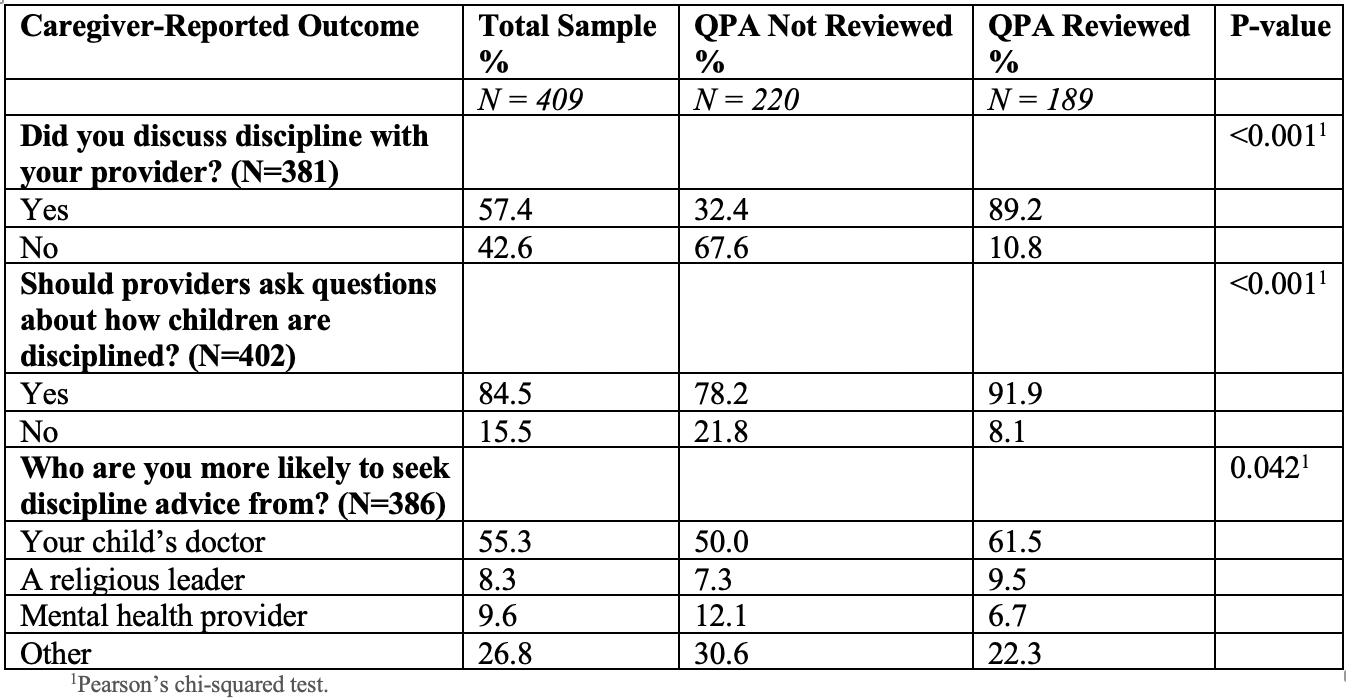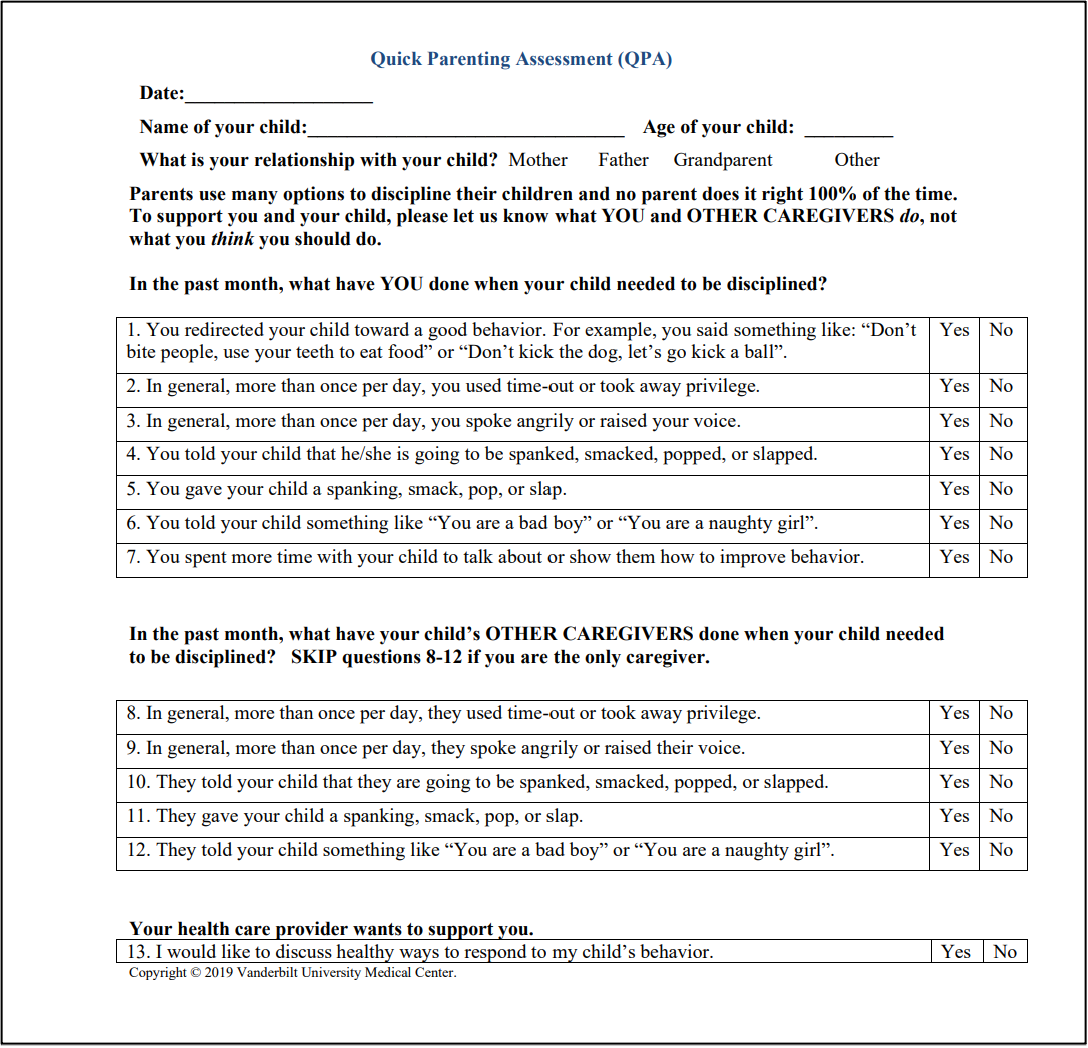General Pediatrics: Primary Care/Prevention
General Pediatrics 3
457 - Association Between Reviewing a Parenting Assessment and Discussions About Discipline in Pediatric Primary Care
Publication Number: 457.216

Anna Whitney, BS (she/her/hers)
Medical Student
Vanderbilt University School of Medicine
Nashville, Tennessee, United States
Presenting Author(s)
Background:
Although discussions about healthy discipline are recommended by the American Academy of Pediatrics, many caregivers report not having these discussions with their child's provider. The Quick Parenting Assessment (QPA) is a 13-item, validated screening tool that has been integrated into the well visit at our institution. We hypothesize that routinely screening for parenting behaviors may increase discussions about discipline.
Objective: To assess associations between reviewing a parenting assessment and discussions about discipline and other measures related to supporting caregivers.
Design/Methods: This implementation evaluation took place at a primary care clinic serving a diverse population. The QPA (Image) was distributed to caregivers by front desk staff with intake paperwork at 15-month, 30-month, 5-year, and 8-year well child visits. After the visit, 538 caregivers were invited to complete a survey about their experiences with the QPA; 409 caregivers who completed the QPA agreed. Key caregiver-reported outcomes were whether a discussion about discipline occurred, whether healthcare providers should ask questions about discipline, and who caregivers are more likely to seek advice from regarding discipline. Outcomes were compared between caregivers whose providers reviewed their QPA responses with them (N=189) and those who did not (N=220). The Pearson’s chi-squared test was used to assess associations and logistic regression to control for sociodemographic factors.
Results:
25% of caregivers identified as White, 45% as Black, and 25% as Hispanic. Reviewing the QPA was associated with an increased proportion of caregivers who reported discussing discipline with their provider compared with no review (89.2% vs. 32.4%; p< 0.001). When the QPA was reviewed, caregivers were more likely to report that providers should ask about discipline (91.9% vs. 78.2%; p < 0.001) and that they are more likely to seek advice about discipline from their child’s provider (61.5% vs. 50%; p =0.042) (Table 1). Regression analysis demonstrated a three-fold increased odds of a discussion about discipline if the QPA was reviewed (OR = 3.18, 95% CI [2.52, 3.84]).
Conclusion(s): The findings of this study suggest a novel and standardized way to ensure that most caregivers discuss discipline strategies with their provider: incentivize providers to review a parenting assessment with caregivers. Reviewing a parenting assessment also appears to have a positive impact on caregiver attitudes toward the role of providers in supporting healthy discipline. These findings have implications for improving pediatric primary care services. 

